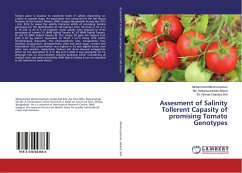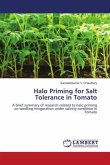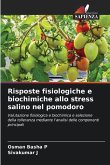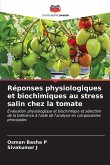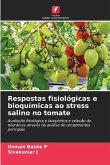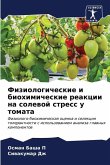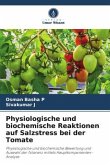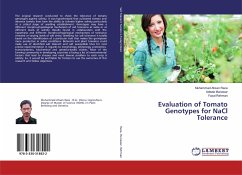Tomato plant is sensitive to moderate levels of salinity depending on cultivar or growth stage. An experiment was conducted at the Net House Premises of Soil Science Division, BARI; Gazipur Bangladesh during Nov.2013 - Feb. 2014 to assess the salinity tolerance ability of promising tomato genotypes for the identification of salt tolerant ones. Six levels (1.14, 4, 6, 8, 10 and 12 dS m-1) of irrigation water salinity were imposed to three genotypes of tomato V1 (BARI Hybrid Tomato 4), V2 (BARI Hybrid Tomato 5) and V3 (BARI Hybrid Tomato 8). The variety V3 gave the highest fruit yield (1.62 kg plant-1 equivalent to 55.25 t ha-1) along with better morphological characters. The photosynthetic rate, transpiration rate, stomatal conductance, photosynthetic yield and total sugar content and intercellular CO2 concentration was highest in V3 was slightly better over other two varieties, respectively. Sodium salt stress showed antagonistic effect on the absorption N, P, K, Mg and S while it was synergistic for Ca although root Ca concentration showed declining trend. Considering all studied traits and yield potentiality, BARI hybrid tomato 8 can be regarded as salt tolerant to some extent.

